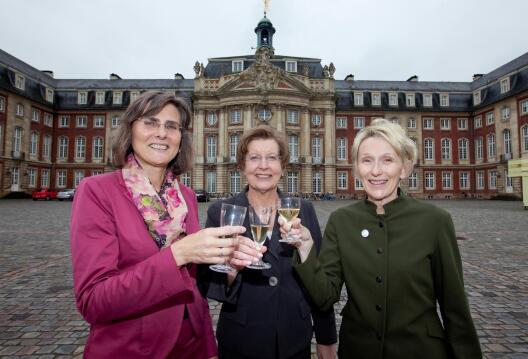CiM Cluster of Excellence will be funded with 48 Mio. Euro

Today the German Research Foundation (DFG) and the German Council of Science and Humanities (WR) announced that the Cells-in-Motion (CiM) Cluster of Excellence was positively reviewed by a panel of internationally renowned reviewers and will be funded for 5 years. This ambitious 48 Mio € project will commence on Nov. 1st, 2012. The CiM coordinating team, Prof. Lydia Sorokin (spokesperson), Prof. Volker Gerke and Prof. Michael Schäfers expressed their delight about the success of the cluster in the highly competitive two-stage national competition.
The Cells-in-Motion (CiM) Cluster of Excellence, is a joint undertaking of the Westfälische Wilhelms-Universität and the Max Planck Institute for Molecular Biomedicine. CIM is driven by a large interdisciplinary consortium of 80 scientists with broad expertise in medicine, biology, chemistry, pharmacology, physics, mathematics and computer sciences.
CiM's vision is to establish an interfaculty environment promoting basic biomedical sciences and clinical translation and their interaction using imaging as a common strategy to understand cellular behaviour, regardless of whether this is in cells or tissues, in animal models or in patients. New imaging technologies permit unique possibilities to investigate cell behaviour in whole organisms. Through the development and use of such technologies the Cells-in-Motion Cluster of Excellence aims to advance basic biomedical research as well as diagnostics and therapies in the clinic.
Integral to the CiM concept is also a new interfaculty educational structure (the ‘Careers in Motion’ Centre) that promotes gender equality and diversity, and includes a novel Master in ‘Experimental Medicine’ allowing medical students to enter into a structured PhD programme. This will bolster high quality clinical research and translation of basic science to the clinic.

